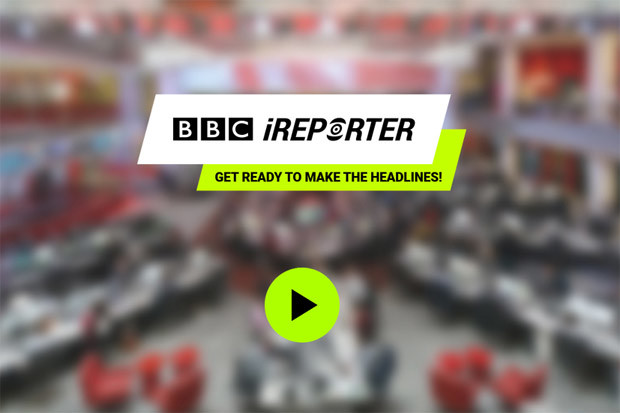The BBC created an interactive game to give young audiences the chance to find out what it's like to be a journalist tackling the challenges of disinformation in today's digital landscape.
Developed in partnership with Aardman, BBC iReporter puts the player in the seat of a reporter as they go through their working day, scoring them on accuracy, impact and speed as they react to incoming news and tasks.
It was designed by the broadcaster to help students filter information, make informed decisions, understand the importance of checking sources and deciding which sources to trust, and the benefits and pitfalls of using social media to gather information.
"We decided to break down the components of the skills that are required in analytical and critical thinking, such as motivations, authenticity and evidence," said Katie Lloyd, development director, School Report, a collaboration between BBC Academy and BBC News, at the Westminster Media Forum last week.
"By placing players in the role of the journalist, they understand the value, thought process and work that goes into creating and telling stories."

Players watch a series of videos that are interspersed with questions where the answers dictate the flow of videos, giving 11-to-18 year-olds a good idea of some of the situations a journalist might find themselves in.
Emails arrive, video calls come in and users have to make decisions under pressure as they get feedback from their news editor and colleagues.
Not only does it highlight the importance of subbing, the role of different people in the newsroom, the risks of using social media and how journalists might interact with audiences online, but the experience also aims to help young people think more critically about the news they are seeing online.
The experience has been designed off the back of BBC School Report research which found that teachers don't feel like they have the tools or knowledge to deliver this education in their classrooms.

Lloyd noted that although Ofcom research found that nearly three-quarters (73 per cent) of online 'tweens' are aware of the concept of ‘fake news’, insights from BBC Newsround and Salford University show that the vast majority of children struggle to recognise false information when confronted with stories that contain it.
"Young people are savvy when they consume the news and media already, but many of them don't have the tools they need to develop the critical thinking skills to tell fact from fiction," she said, noting that the BBC has been producing materials such as teacher packs, advice and films to help with this, alongside mentoring and free online materials.
"In all of the workshops we have done, where we asked children to choose fact from fiction, the children couldn't believe that they didn't get all the answers right – their jaws dropped when we said that people would purposefully push out false information.
"Our next steps are to take it global through our World Service operation – we know the issue of fake news is far greater in other countries than it is here."
Free daily newsletter
If you like our news and feature articles, you can sign up to receive our free daily (Mon-Fri) email newsletter (mobile friendly).
Related articles
- How to use Telegram for online journalism investigations
- DCMS-backed media literacy programme is supporting vulnerable internet users
- Is AI text-to-image technology blurring the lines between fact and fiction?
- News on digital platforms is trusted less, new study finds
- Claire Sanderson, editor-in-chief of Women's Health UK, on purpose campaigns












